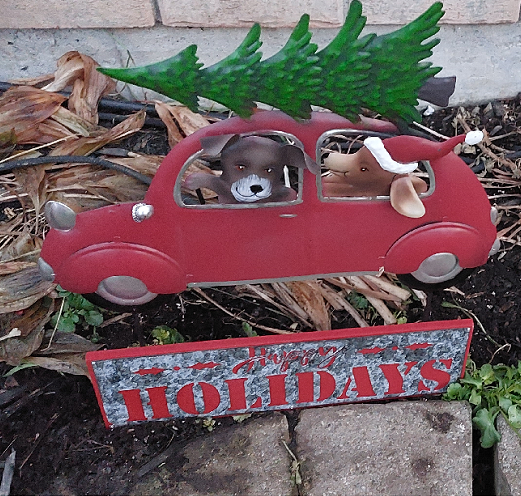It would seem that Christmas as we call it now has a questionable start! People, whether Black or other wise are asking this question more and more. Why does Christmas not feel like Christmas anymore? Where Did Christmas Begin?
Pre-Christian Germanic peoples, including the Anglo-Saxons and Norwegians, used to celebrate a winter festival called Yule. This ran from late December to early January. It was the modern English yule, which is now used synonymously with Christmas. This pagan holiday soon became a time when families came together to celebrate and worship Jesus. Roman pagans, on the other hand, first introduced the holiday of Saturnalia, a week long period of lawlessness celebrated between December 17-25.
The Rev. Augment Mather of Boston observed in 1687 that the first Christians who first observed Christmas on December 25th did not think that Christ was born that month, but because pagan Saturnalia were being held in Rome at that time, they turned these pagan holidays into christian holidays. The Puritans believed that the celebration of Christmas was too rooted in paganism, and went so far as to forbid any observance of Christmas-related customs and traditions from 659 to 1681. Fearing the pagan roots of the holidays, the Puritans wanted to keep Christmas out. It’s no wonder that I don’t like Christmas anymore.
December 25 was chosen to increase the possibility of Christians all over the world accepting this celebration. By 432, Christmas had spread to Egypt, and by the Middle Ages, the custom of celebrating Christmas had spread to the world, replacing pagan festivals, and continued to spread in the following centuries. Around the third and fourth centuries, Christmas began to be used as a holiday and celebration to celebrate the birth of Jesus Christ.
Elements of the various pagan holidays that took place in the month of January gradually transformed into the celebration of Christmas, many of which are still practiced today. These elements included gifts, a Christmas tree, giving and receiving greeting cards, and a Christmas magazine based on the practice of a homeowner giving firewood to a tenant at the birth of a child. Combining Christmas with these ancient holidays allowed the church to preserve the tradition of winter holidays, reorienting the holiday to a “new” religion of Christianity; at the same time, many pagan rituals were abandoned.

everything changed
Everything changed in the fourth century when Pope Julius I chose December 25 as the official date on which Christians would celebrate the birth of Jesus.
However, over time, Christians in Egypt began to consider January 6 as the date of the Nativity of Christ. The custom of celebrating the birth of the Savior on this day gradually spread, until in the fourth century it was established throughout the East. And most of the traditions that we have in regards to Christmas refer to the solstice, which was celebrated in ancient Rome on December 25.
The early church also celebrated the Resurrection of Christ in the spring, in the season of new life, as it coincided with Easter on Nisan 14, a date that depended on when the first full moon came in March or April.
Officially, Christmas as a holiday most likely began around the 4th century. Today, Christmas is both a religious holiday and a cultural holiday, centered on the birth of Jesus and celebrated all over the world. In many countries in the world, including many countries where non-Christian populations dominate, Christmas is regarded as a major holiday and public holiday.
When Christmas began to be celebrated in various parts of the world outside of traditional Christian culture in the 20th century, some Muslim-majority countries subsequently banned the custom of Christmas, believing that it undermined Islam.
In the early 17th century, a wave of religious reforms changed the way Europe was celebrated. In the 17th century, religious reforms gained momentum and also influenced the celebration of Christmas. This was around the third century AD. This Christmas began to be celebrated as a Christian holiday (possibly) thanks to Sesto Giulio Afrikano, the Christian historian of the time.
Christmas literally means “Mass for Christ”, the day when Christians celebrate the birth of Jesus. December 25 is not the birth date of Jesus Christ, the spiritual leader and founder of Christianity. His birth is the reason why many people celebrate Christmas. So, the Christmas as we know it did not start at the birth of the second Jesus-it is not even clear whether he was actually born on December 25th.
For people of African descent, there seems to be recognition of the divide in thought around the origin of Christmas. In fact there is even the knowledge that in 1854 , while slavery was rampant in the USA and elsewhere,, Harriet Tubman, the famous black abolitionist, used the holiday to travel to the Eastern coast of the USA to rescue her three brothers. She had heard they were to be sold, which would mean the end of their family. Tubman was successful and this heralded the start of the Underground Railroad .
The first recorded date for the celebration of Christmas on December 25 was in 336, during the time of the Roman emperor Constantine (he was the first Christian Roman emperor). Many historians believe that this date was liked by both the Pope and the Emperor, because it coincided with the pagan holidays of the winter solstice, rooted in the past.
The early Christians associated the birth of Jesus with the sun through the general phrase “the sun of righteousness.” The Roman church began to celebrate Christmas in the area of the emperor’s contested, as the actual religion of the contested was Christianity. St. Augustine of Canterbury was the man who probably began the widespread celebration of Christmas in much of England. He introduced Christianity to Anglo-Saxon-ruled regions in the 6th century (other Celtic parts of Britain were already Christian, but there are not many records of if or how they celebrated birth of Jesus).
As we share this knowledge with our children, share this awesome little book with the young ones. The Magical Christmas Festival is just an easy way to share the feelings of giving, family and caring for each other
.https://www.amazon.ca/Magical-Christmas-Festival-Eleanor-Wint/dp/B08Q6HJZY5
Enjoy Christmas with the kids and (penguins)Up North, as we say in Canada!

